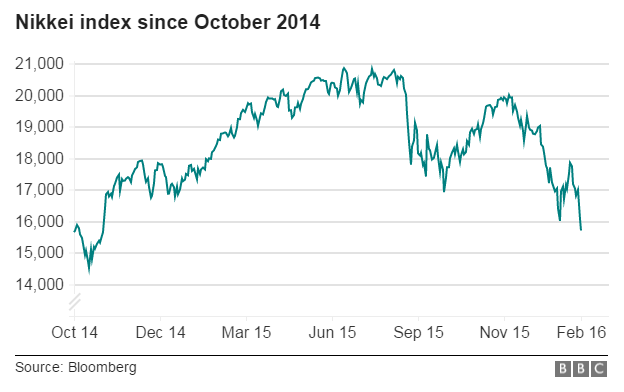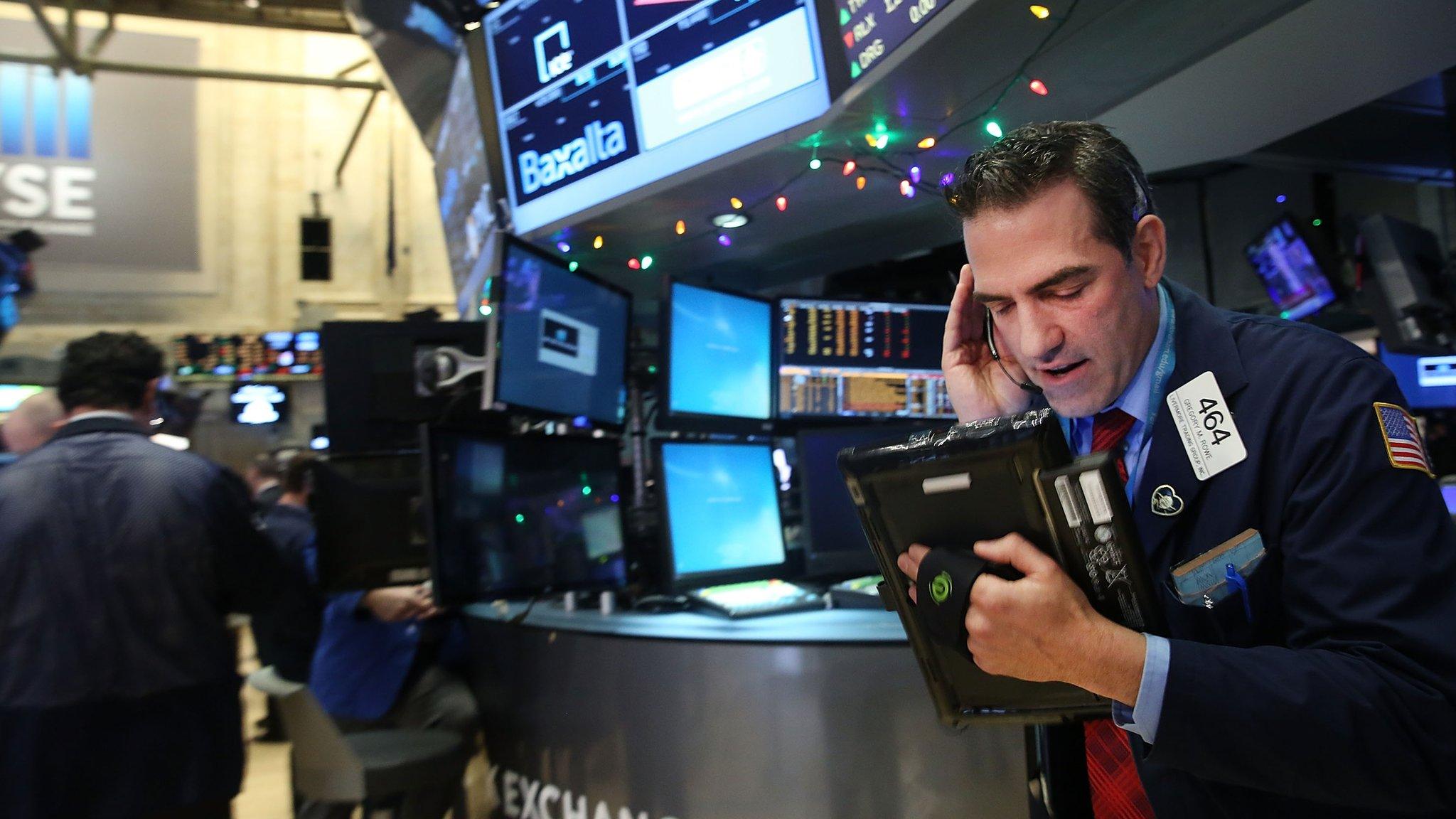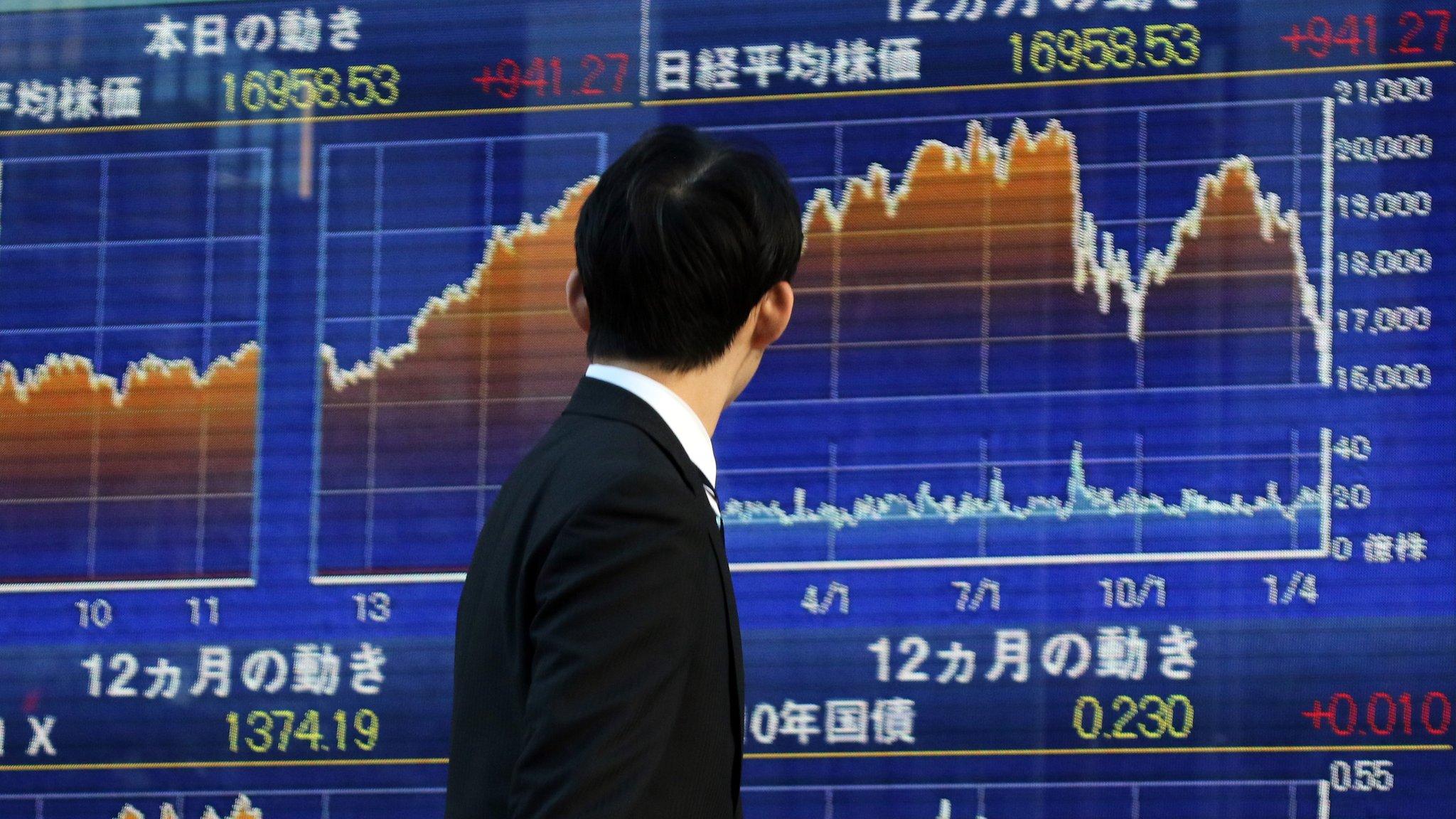Japan stocks tumble into bear market territory
- Published

Japanese shares have continued their slide, falling almost 7% in two days and entering bear market territory.
Tokyo's Nikkei 225 dropped sharply by another 2.3% to close at 15,713.39, adding to Tuesday's 5.4% tumble.
The index has lost more than 20% since mid-2015, meaning that it entered a bear market as investors lost their confidence.
Latest concerns have been fuelled by a strengthening of the yen, which is expected to hurt exports.
The worry is that the currency is seen as a safe haven in an insecure regional economic context. If the yen keeps appreciating, it could hurt companies' international competitiveness and cut into the export sector's profits.


Andrew Walker, World Service economics correspondent
Once again the financial sector took the full force of the storms in Tokyo. Mitsubishi UFJ Financial has lost 15% this week and Sumitomo Mitsui Financial is down 13%.
It's certainly true that the recent growing unease about the global economic outlook and the consequent financial market turbulence does have the potential to affect the banks more than many other sectors.
But has the sell-off in financial stocks been overdone?
Judging by the performance of the European markets so far on Wednesday, some investors do seem to think so.
Deutsche Bank, the focus of European anxiety managed to gain more than 10%, but then it is still down a lot from the New Year.
It leaves us with a great deal of uncomfortable uncertainty about where the financial world is heading. What we can say for sure is that the clouds that gathered during the financial crisis are still with us.

Over the past few days, the yen has been rising against the US dollar, despite the Bank of Japan's recent introduction of negative interest rates.
Japan's lenders were amongst the hardest hit as the negative rates are expected to squeeze their already tight profit margins.
The banks Sumitomo and Nomura lost 4% and 3.5% respectively, while Mitsubishi bank tumbled 7%.
"Asian markets have fallen once again, although without quite the same ferocity we saw in yesterday's bloodbath and there is some buying coming back into the equity markets," Chris Weston of IG markets said in a note.
Commodities weigh down Australia
In Australia, the ASX 200 lost 1.2% to close at 4,775.70 points, adding to the 2.8% decline of the previous day.
Shares continued to be weighed down by the dominant energy sector.
Bellwether stocks BHP Billiton and Rio Tinto were down by 2.5% and 1.2% respectively as concerns about lower global commodity prices continued to affect the market.
Banking stocks were equally hard hit, with NAB, ANZ and Westpac all seeing significant falls.

CBA was the only lender with slight gains
The only lender of the big four to beat that trend was the Commonwealth Bank, which posted half-year results just before the market opened.
The bank posted a 4% gain in cash profit, although revenues slipped and loan impairment expenses increased.
Shares picked up and rose by 1.8%, a moderate gain given that the bank's shares have dropped more than 15% since the beginning of the year.
Markets in Hong Kong, China and South Korea remained closed for the Lunar New Year holidays.
- Published9 February 2016

- Published9 February 2016

- Published9 February 2016
